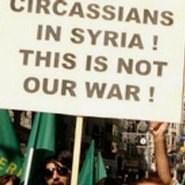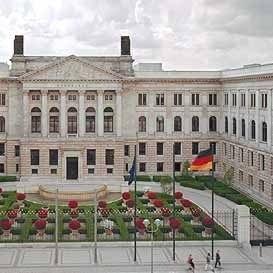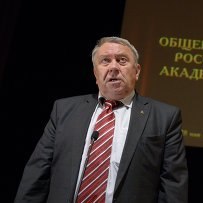Circassians all over the world commemorate the 149th anniversary of the end of the Russian-Caucasus war every year on May 21. In Russia, where about a million Circassians live, meetings and events were held with representations of the leaders of the Circassian republics in Maikop (Adygea), Nalchik (Kabardino-Balkaria), and Cherkessk (Karachaevo-Cherkessia). In Turkey, where about five million Circassians live, events were held in Istanbul, and similar events took place in other Circassian diaspora communities in Jordan, Syria, Israel, EU, and the USA.
The Circassian Memorial Day of May 21 is the most important date for Circassians – a people who live scattered across more than fifty countries. On that day, every year, Circassians light 101 candles and hold a minute of silence in commemoration of the war, which lasted one hundred and one years (1763-1864).
There are several main long-standing issues for Circassians: first, the Circassians demand from Russia to recognize the genocide against the Circassians, which has already been recognized by several parliaments in the region: Kabardino-Balkaria (1992), Adygeya (1996), Abkhasia (1997), and Georgia (2011); second, Circassian organizations are concerned with obtaining Russian citizenship for members of the Circassian diaspora, which is the second largest outside Russia after the twenty-five million ethnic Russian diaspora; and third, the Circassians in the North Caucasus and in the diaspora want to see the unification of the Circassian territories into one republic within the Russian Federation, eliminating the ethno-territorial divisions Stalin imposed on the people.
These issues – the “Circassian question” – are connected with the upcoming 2014 Winter Olympics in Sochi. This celebratory event coincides with a tragic one – the 150th anniversary of the Circassian exile. Sochi is considered by the Circassians as the last capital of independent Circassia. Its port was the place from which the Circassians were deported to the Ottoman Empire. Moreover, Krasnaya Polyana (Kbaada in Circassian), the area that will be the center of the 2014 Olympic Games, was the place where, on May 21, 1864, a parade of Russian troops celebrated the end of the war against the Circassians.
Thus, the Circassian strategic goals – the recognition of genocide, repatriation of the diaspora, and the reintegration of territories – correspond to some international issues. In that way, the activism against the 2014 Olympics is a tactical expression of the problem of the recognition of the Circassian genocide.
The Syrian conflict is another main concern of Circassians because the Circassian population in Syria consists of about 150,000 people. In spite of being a minority, the Circassian community there is rather influential and actually it traditionally supports the current regime in Syria – Circassians represent one member in Government, two members in the parliament, and occupy many positions in the military and law enforcement agencies.
Due to being close to Assad’s regime, the Circassian community in Syria has found itself in a dangerous situation in the ongoing Civil war in Syria. The anti-government revolutionary forces threaten the Circassian community for being in a pro-government political position; at the same time, they regard the Circassians as non-Arabs who are foreign to the country. All the while, the existing regime is not capable to defend them.
Russian Circassians applied to the Kremlin many times over the last several years asking to let the Syrian Circassians return to the North Caucasus where they were expelled by the Tsarist regime in the middle of the 19th century. According to the logic of the Circassian's requests, firstly, Russia should help the pro-Assad Circassian community and secondly, the repatriation of the Syrian Circassians would help the Kremlin itself to resolve the anti-Olympic protests in the Circassia world.
However, Moscow looks at the situation from different perspective and blocks the repatriation of the Syrian Circassians to Russia. From one hand, Russian leaders fear that repatriation of the Circassians may further complicate the situation in the Islamic North Caucasus and arise more anti-Caucasian xenophobic feelings among the Russian nationalists. From the other hand, while supporting the Assad’s regime, Russia fears that a massive Circassian exodus may cause a panic among Assad’s supporters and weaken the existing Syrian regime, which Russia continues to support.
Sufian Zhemukhov is a Visiting Fellow at the Institute for European, Russian and Eurasian Studies (IERES), George Washington University, blogging for PONARS Eurasia on the Caucasus.











